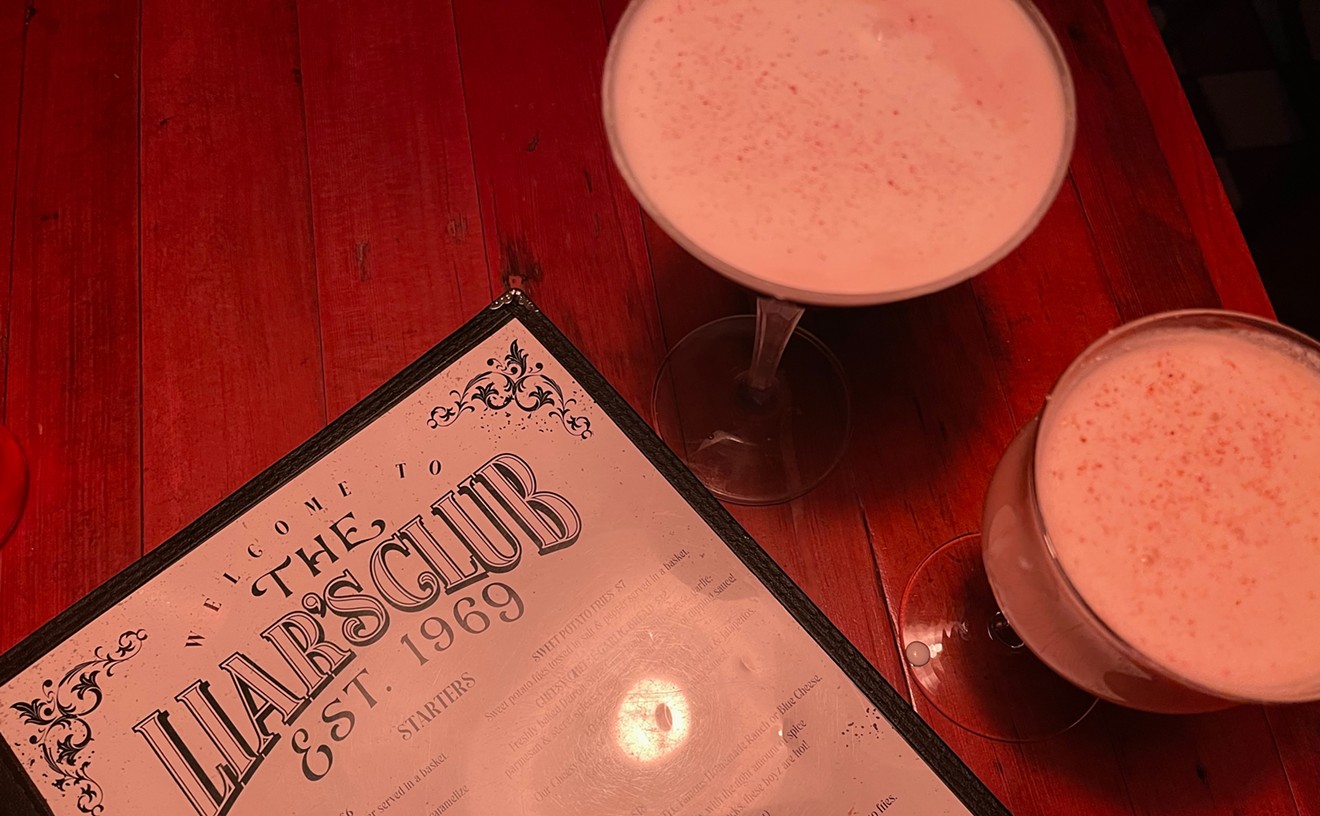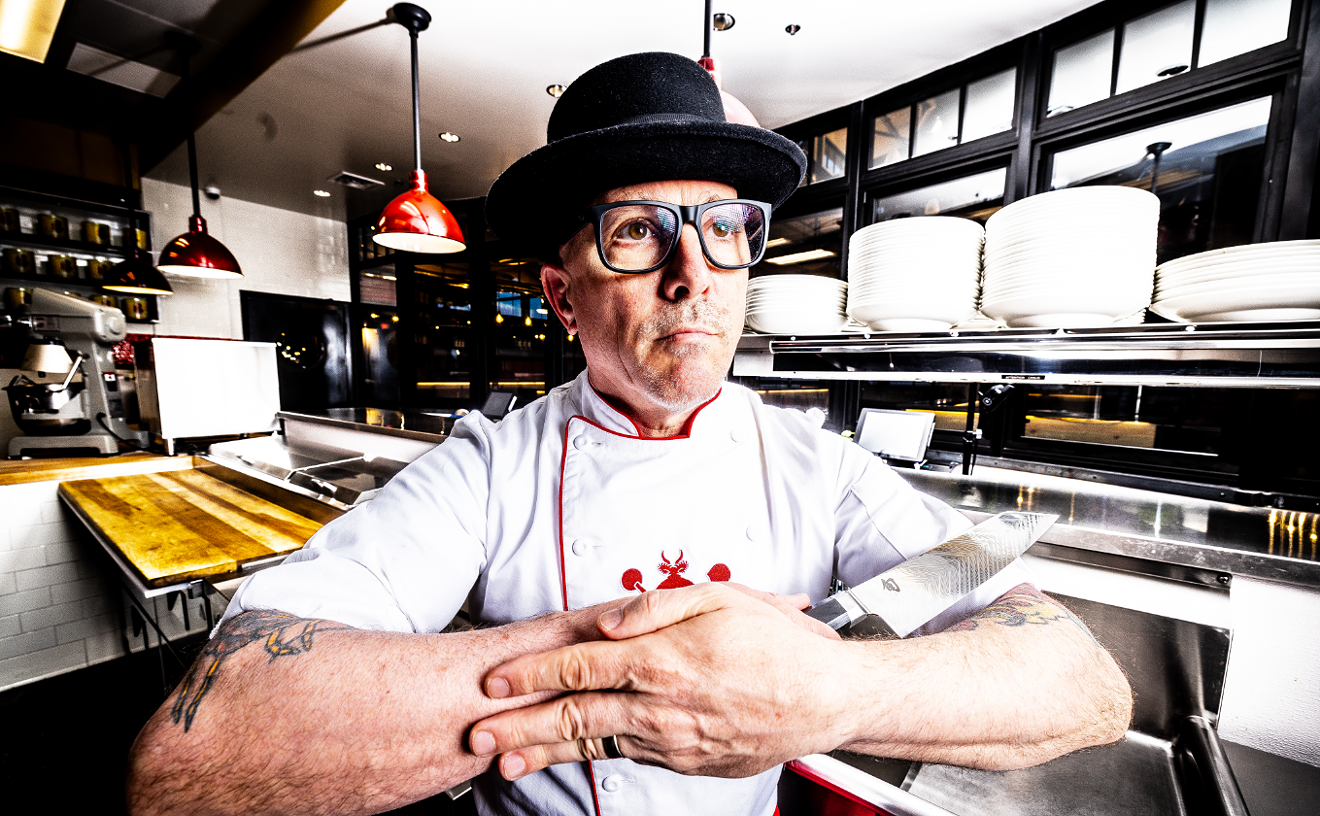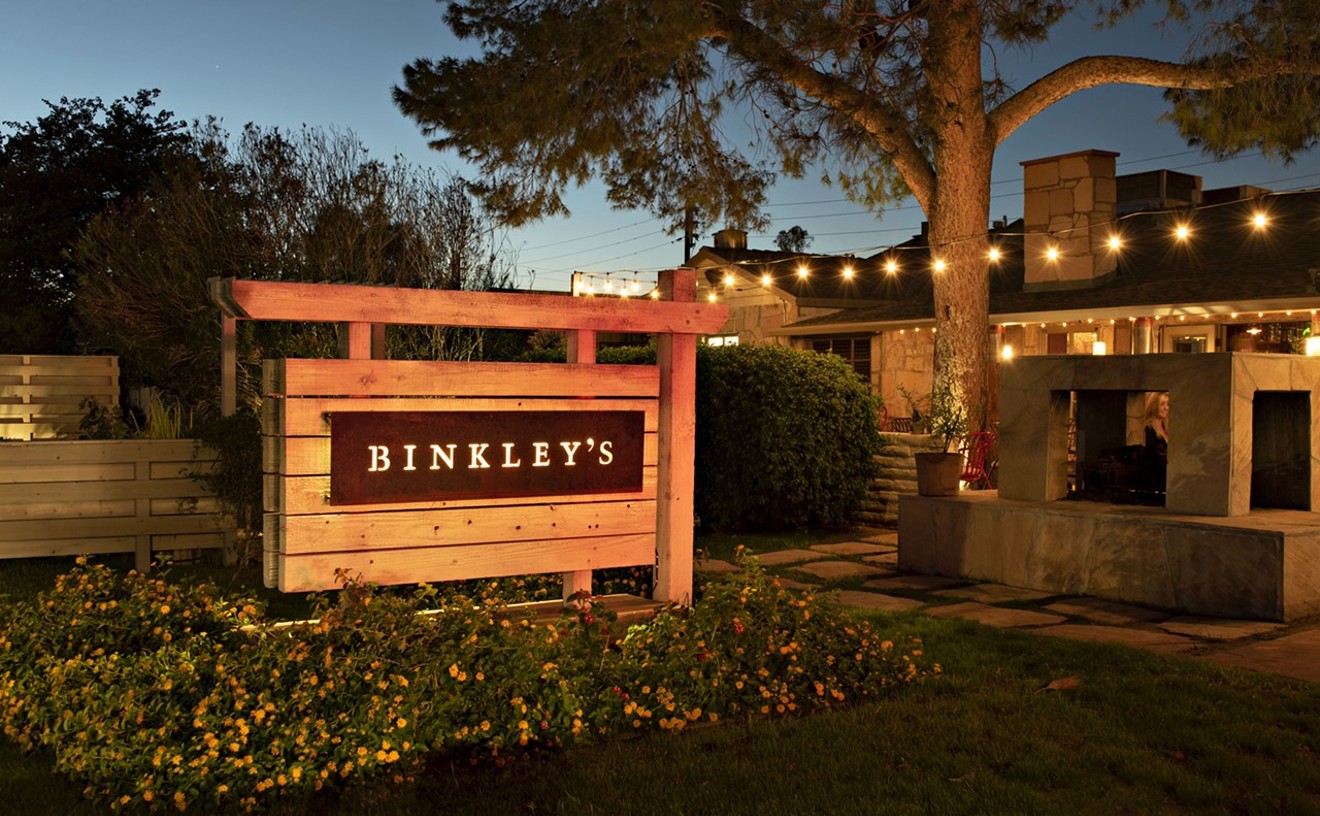
A plate of food from Alice Waters' Chez Panisse restaurant in Berkeley, California. The restaurant is largely credited as being one of the first and most vocal supporters of the farm-to-table movement in the United States.
Flickr/John Joh, https://www.flickr.com/photos/johnjoh/
One of the biggest buzzwords in the food world in recent years is "farm-to-table," which usually refers to sourcing and serving fresh and local food. The problem with buzzwords? They eventually become meaningless. Vanity Fair even argued that the current movement places more importance on where food comes from, rather than how it tastes. We reached out to Phoenix chefs to see how they feel about "farm-to-table," and what they feel it means today.
Tracy Dempsey, owner of Tracy Dempsey Originals
"I'm not sure that making a big to-do about it makes sense. Lots of chefs were practicing farm-to-table before the moniker came to be. I think of Chrysa Robertson, Charleen Badman, Dustin Christofolo, and Sacha Levine, to name a few, who do this as standard practice, but aren't inclined to call it anything but good, seasonally inspired food. To me, it means using what is available locally and cooking with the seasons. It's important to educate one's diners about where the ingredient comes from, but I think the days of identifying every product on the menu are over."
Keon Salehizadeh, executive chef of Social Tap Eatery
"I believe this statement is relevant only under certain circumstances. There is a big difference between buying local and actually being involved with local farmers and purveyors. Farm-to-table to me requires a great deal of time dealing with local farmers, butchers, and other purveyors — just because a chef buys local Arizona produce, dairy, and meat, this doesn’t mean farm-to-table to me. A chef needs to go to farms and ranches and see what is actually going on and understand and develop relationships directly with purveyors, as well as purchase items that are specific to seasons."
Gio Osso, chef of Virtú
"The thing about farm-to-table is that it's not a new movement, and it will never go away. Chefs have been doing that for years, but with the use of social media in recent years it's become a popular mainstream labeled style of cooking. Chefs are always in search of the best ingredients. Farm-to-table, sea-to-table, nose-to-tail — any and all of the above are all ideas that continuously shape the culinary scene."
Cruz Robles, chef of Bevvy
"I would say farm-to-table means to have as few hands between the grower and the chef as possible and less processing and less middle men to add to cost. I definitely think farm-to-table is important for finding ways to cut back on the carbon footprint we as consumers create. Anything to keep things local and to provide fresher, healthier ingredients is going to be huge in the next few years to come."
Virginia Senior, chef and owner of Urban Beans Bar & 24 Hour Cafe
"The movement is relevant now more than ever. I see it gaining in awareness, and more urban farms producing more local ingredients. The sustainability aspect of farm-to-table is only just now being understood. At Urban Beans Bar & 24 Hour Cafe, we work with Recycle City to pick up our organic waste, and they in turn create compost for local farmers. Now we are really seeing full-cycle food, with local harvesting, composting, and growing. Keeping it local cuts down on transportation in all aspects of the cycle, creates local jobs, and promotes less energy. Urban farms can let the produce ripen longer, as they are not being transported long distances, so we have more healthful and delicious fruits and vegetables. We also donate our day-old baked goods to Waste Not, who takes them directly to senior centers, shelters, and group homes, so no good food is wasted. We have a goal of zero waste and reuse. Two great partners doing good things in the city."
Judd Cummings, executive chef of Mill Avenue Management Group
"Well, since I am a farmer-chef, it means 'a way of life.' I have a goat farm where we make local goat cheese and sell it to restaurants. The movement is not only relevant today but is increasingly important as we become more global. Think local, be local, eat local. Know where your food comes from."
Donny Fawcett, chef of Phoenix Ale Brewery Central Kitchen
"Farm-to-table is absolutely still relevant. However, we need to stop using the term as a marketing tool, and make it an everyday norm. In Europe, they don't have to advertise farm-to-table. It just is. Support local and eat fresh."
Christopher Nicosia, chef of Sassi
"I think that people are more concerned with where their food comes from now more than ever, so it is absolutely still relevant today. It means being able to trace your food back to the farmer who raised/grew it, with no extra hands in between. There's also the social aspect of it. People gathering at the markets, exchanging ideas and recipes, and talking about fresh food is a great thing for chefs and restaurants."
Dushyant Singh, director of culinary experiences at The Camby Hotel
"Yes, the movement is relevant, but it’s time to take it further into sustainability. Is that farmer using right practices? We can’t just assume local means good."
Brian Archibald, chef of The Boulders Resort & Spa
"I believe it's really connecting straight with the families growing your food. Understanding the hard work and how you can support that through your menus. It’s never been not relevant; the U.S. is just reconnecting with what has been lost. Raising quality ingredients is just harder, just liking cooking a quality dish."
Michael Rusconi, chef and owner of Rusconi’s American Kitchen
"I have been purchasing with this idea in mind long before it was trendy to call it farm-to-table. It is still relevant, and it used to mean food you could get within a five-hour drive of your restaurant. Yes, it’s also about supporting local farmers and business.I spent my summers as a youth in the middle of the San Joaquin Valley; my grandfather knew all the farmers. We could go into the fields and pick fresh melons, tomatoes, and other produce. I worked a summer clipping garlic at my great-uncle's farm,Cal Swiss Farms. There are tons of great produce and products that come from in-town sources, but also tons of great produce coming out of Yuma, Arizona, much of it organic, and of course, the San Joaquin Valley. Fresh is really the key."
Chris Neff, chef of Lincoln
"It’s definitely still relevant today. People want to know where their food comes from and who grows it. I have two gardens on property that are constantly yielding product for Lincoln. The most gratifying experience for me is being able to take my guests out to the gardens, pick out some fresh vegetables and herbs, then go back to the kitchen and prepare them a meal with those ingredients."
Chris Lenza, executive chef of Cafe Allegro at the Musical Instrument Museum
"In my opinion, farm-to-table is to building strong relationships and helping support hardworking small and family-owned businesses. The products you can get through these avenues are fresher, taste better, and are higher-quality ingredients. Knowing where and how produce is farmed also helps you support farm workers' rights, to aid in ensuring those workers enjoy the same rights and protections as employees in other occupations. Locally sourced ingredients also have lower carbon footprints, trafficking the money back into your own economy, which helps create more jobs and challenges the artisans to make better products year over year.
Yes, the movement is very relevant today because we are only seeing a handful of operations supporting this initiative. We have more work to do creating awareness for the farm-to-table movement. Looking beyond the restaurants that are already purchasing from local farmers, it would be nice to see more awareness and education in place for our K-12 school systems, local groceries, large food franchisees, and consumers alike."

























